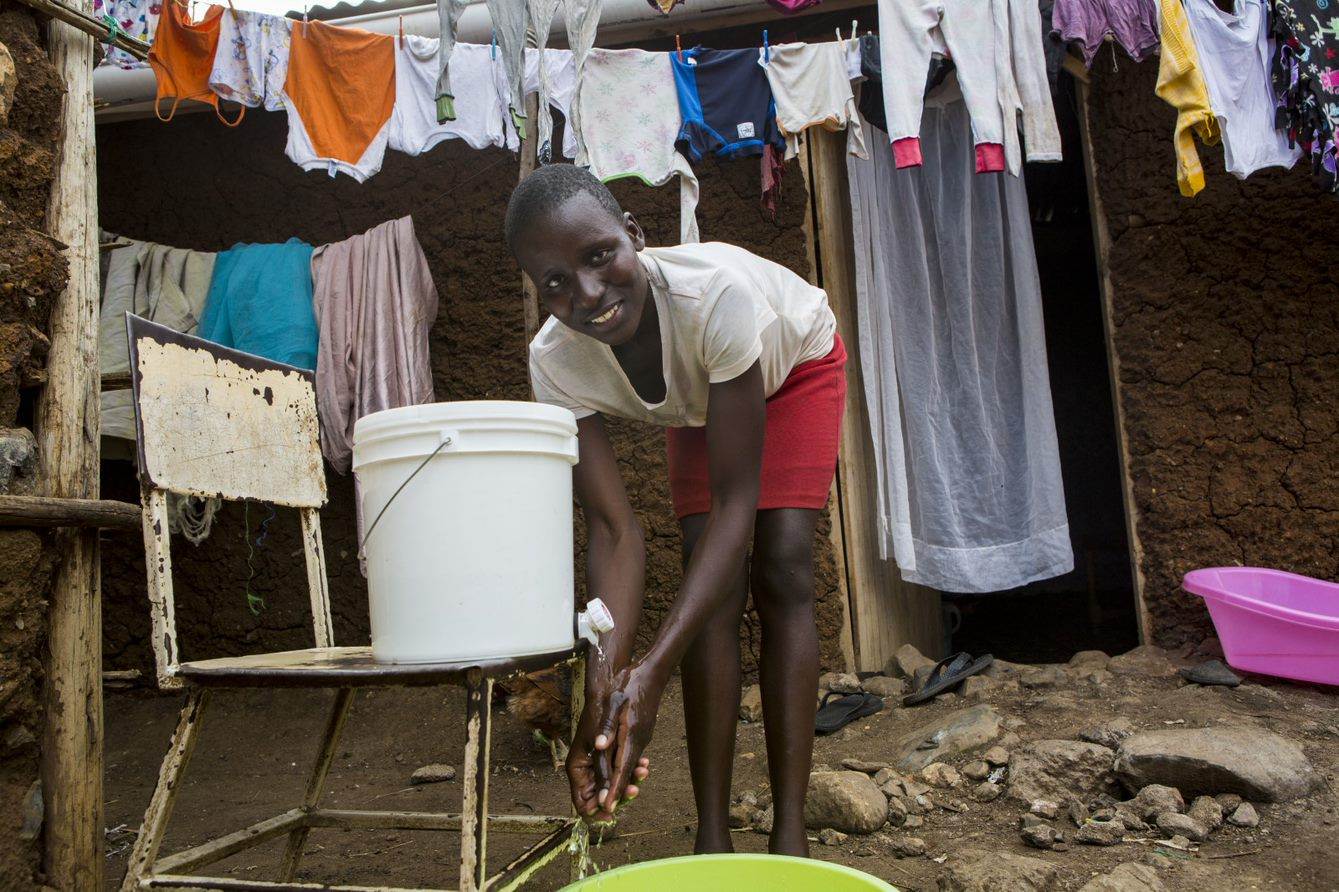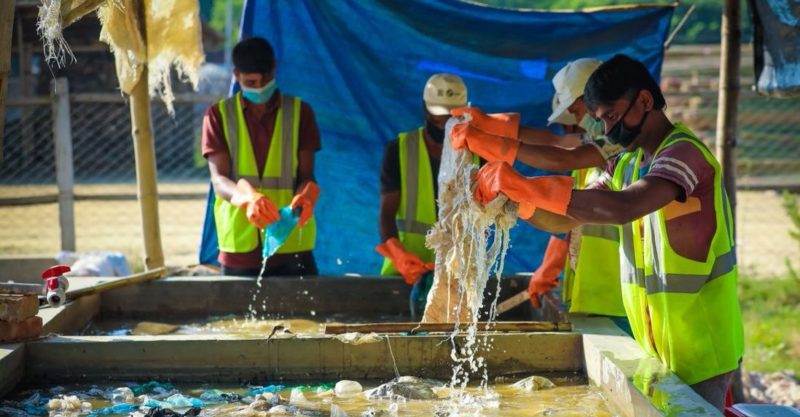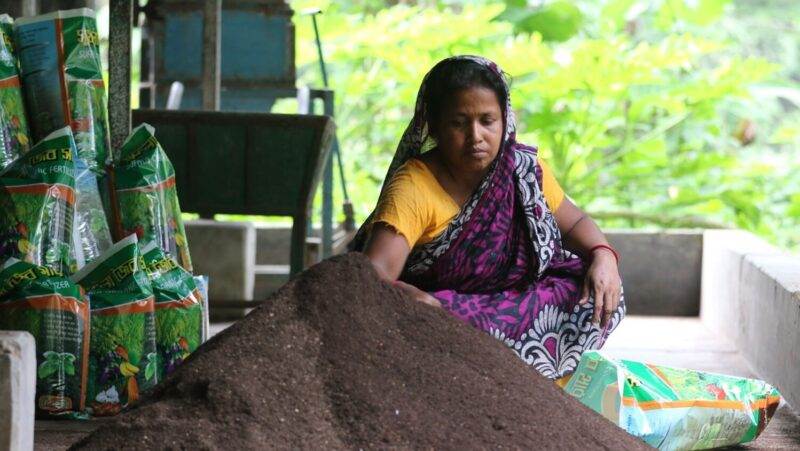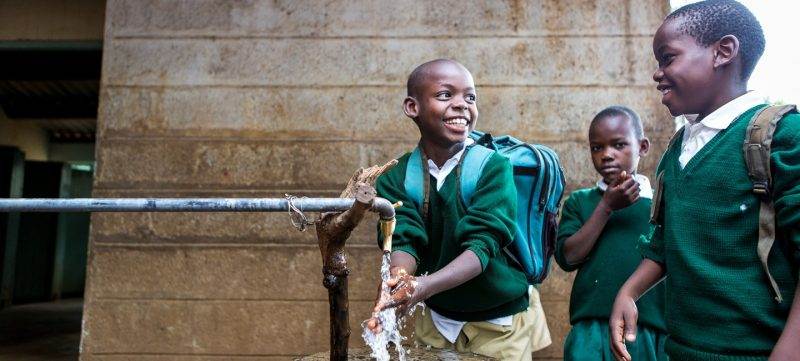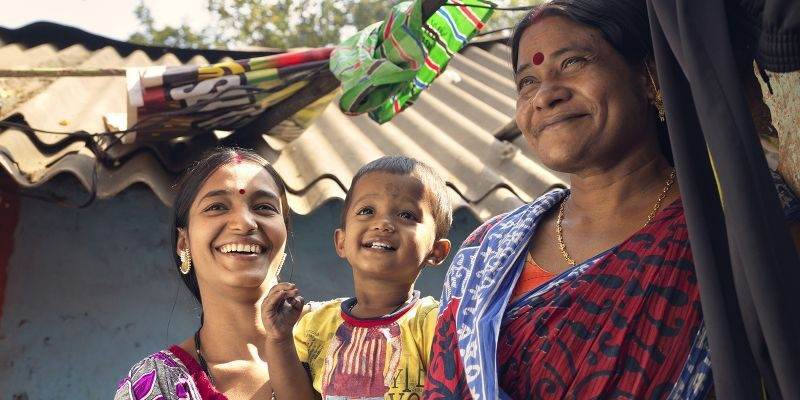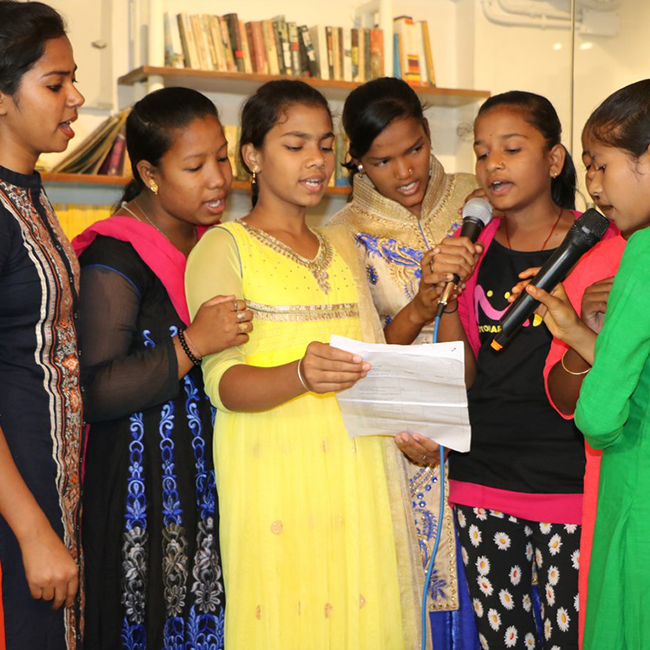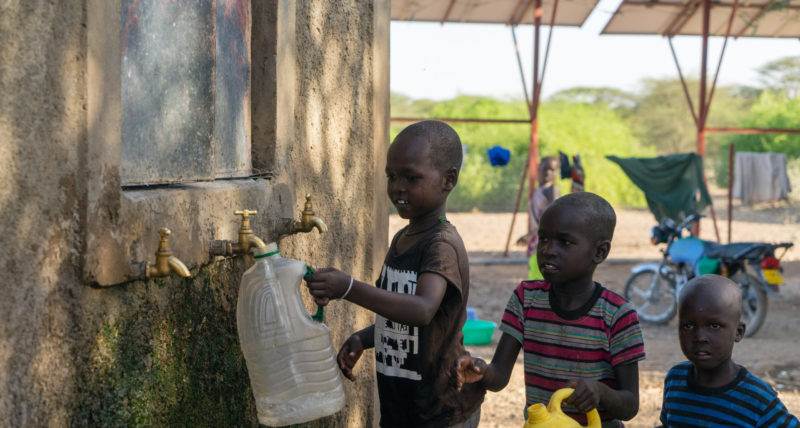We’re working with communities in poorer countries to make cities cleaner, healthier, and fairer places for people to live and work.
By working with marginalised communities in lower-income and ‘slum’ areas, we aim to ensure that there is clean drinking water, safe toilets and hand washing is available to all people, city-wide.
Working with communities and service providers
Often in poorer neighbourhoods and ‘slum’ areas of developing countries, communities have inadequate provision of urban services. Without connection to a sewer network, toilets are often container-based and must be emptied. Informal pit-emptiers provide an important service for communities in emptying these toilets, but often experience poor working conditions and stigmatisation.
Practical Action works with communities and service providers to develop people-centred solutions for urban sanitation. We begin by working with the existing and thriving network of informal workers to improve conditions and services for all. This enables empowerment of marginalised workers and can develop sustainable solutions. We work with communities to assess needs and prioritise locally-specific solutions. Through behaviour change communication, we challenge worker stigmatisation.
Importantly, Practical Action is skilled in bringing together the bold collaborations that are needed to develop long-lasting solutions. We work across the sanitation value chain to bring together partnerships between local government, socially-minded private service providers, and community representatives.
We continue to develop these collaborations across regions in Bangladesh, India and Kenya – enabling ongoing development throughout the sanitation value chain.
Practical Action is leading new innovations to integrate sanitation management with solid waste management, unlocking significant and sustainable benefits for people and planet.
This inclusive model works to improve conditions for service users and waste workers, whilst utilising a circular economy approach to produce value in a range of waste products.
We are sharing our experiences and the exciting potential of people-centred and integrated waste management around the globe, for example at last year’s World Water Week.
Practical Action News and Views
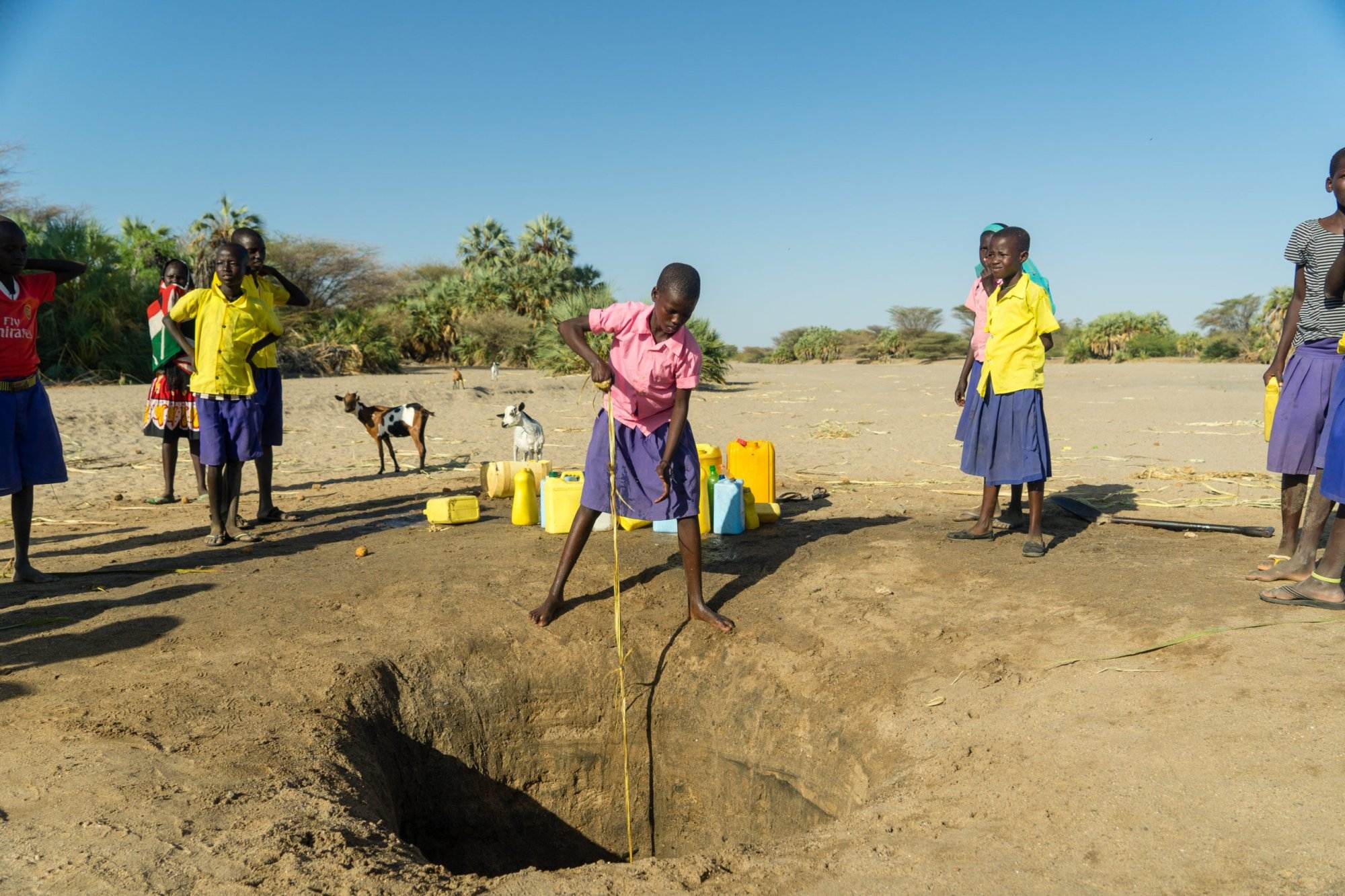
World Water Week 2022
The global water crisis and climate chaos is putting unprecedented pressure on the world's freshwater. Fast-rising temperatures, increasing populations and varying consumption patterns mean that we need to adapt and innovate to manage water better.
Find out more#block7 inner {padding-top:0!important;}
Practical Action Projects and Resources
Some Urban Sanitation Projects
Key Urban Sanitation Resources
Strengthening Gender Responsive Urban Sanitation: Faecal sludge management in Bangladesh
To achieve the safely managed sanitation target under Sustainable Development Goal 6, the Government of Bangladesh ha...
Strengthening Gender Responsive Urban Sanitation: Public and Community Toilets in Bangladesh
In 2021 Practical Action conducted in-depth qualitative research to understand the experiences and priorities of wome...
Improving Water Access, Sanitation and Hygiene in Informal Settlements in Kisumu City
This brief summarises the impact of two key projects on urban water, sanitation and hygiene (WASH) in informal settle...
Routes to scale safe sanitation
This infographic portrays the current status of sanitation in informal communities where Practical Action works. The ...
Creating the working conditions for health, dignity and opportunity
This policy brief has been produced based on a study titled ‘Waste and Sanitation Workers’ Working Condition, Occupa...
Emptier to Entrepreneur - Ensuring dignity in the lives of waste and sanitation workers in Bangladesh
Practical Action is working with informal sanitation and waste workers in Bangladesh to improve their dignity, workin...

We are contributing to ending preventable deaths, particularly in children under the age of 5, by ensuring that communities are served with clean water and handwashing facilities.

Poor sanitation facilities affect women and children the most, as they are often more vulnerable to unsafe practices (such as poor lighting, security concerns, over-sized pit latrines, or the unavailability of menstrual hygiene products).
Whilst these groups will also usually bare the burden of inaccess to safe water.
We work to ensure these vital services are provided, whilst empowering women representatives to lead on decision-making, design and oversight.

Our cities programme works with informal workers to develop safe, affordable and reliable water and sanitation services in underserved communities.
This has enabled last-mile connections and newly declared ‘safe neighbourhoods’ which are free from open-defecation.

We bring together bold collaborations across the sanitation sector.
We facilitate between city government, private enterprises, sanitation workers and the community to develop lasting, sustainable, inclusive services.

